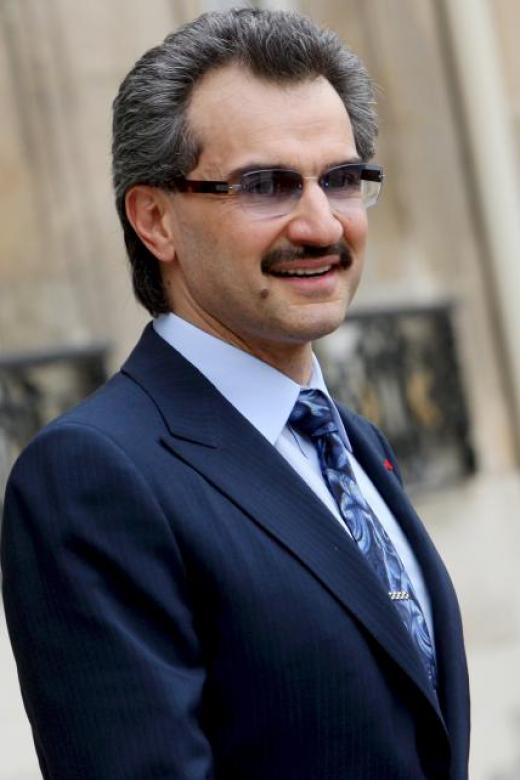Business world anxious after prince's arrest
Saudi purge aimed at removing opposition to Crown Prince Mohammed and speeding up reforms
RIYADH The detention of Saudi Arabia's Prince Alwaleed bin Talal, known for his big bets on Citigroup and other top Western companies, could have an impact on billions of dollars of investments around the world.
Prince Alwaleed, 62, was among 11 princes, four ministers and tens of former ministers detained, two senior Saudi officials told Reuters yesterday.
All the accounts of those arrested have been frozen.
The arrests came immediately after a new anti-corruption commission headed by Crown Prince Mohammed bin Salman was established by royal decree.
The new body was given broad powers to investigate cases, issue arrest warrants and travel restrictions and freeze assets.
For many foreigners, Prince Alwaleed - whose net worth has been estimated by Forbes magazine at US$17 billion (S$23.2 billion) - is the face of Saudi business.
His investments, current and future, may now be in doubt.
"There will be questions on what this all means," said a senior executive at a European financial institution.
"People will be looking at any kind of international holdings of the people who have been arrested, to see what will be the impact."
Aside from a stake in Citigroup, Prince Alwaleed owns significant stakes in Twitter, ride-hailing firm Lyft and Time Warner.
His investment firm Kingdom Holding - whose share price plunged 10 per cent yesterday in response to news of his detention - recently bought about half of a 31.1 per cent stake in Saudi lender Banque Saudi Fransi from France's Credit Agricole.
Analysts said the goal of the purge went beyond corruption and aimed to remove potential opposition to Prince Mohammed as he pushes an ambitious and controversial reform agenda.
In September, he announced that a ban on women driving would be lifted and he is trying to break decades of conservative tradition by promoting public entertainment and visits by foreign tourists.
"The most recent crackdown breaks with the tradition of consensus within the ruling family whose secretive inner workings are equivalent to those of the Kremlin at the time of the Soviet Union," wrote Mr James Dorsey, a senior fellow at Singapore's S. Rajaratnam School of International Studies.
An economist at a big Gulf bank, who declined to be named because of political sensitivities, said nobody in Saudi Arabia believed corruption was at the root of the purge.
"It's about consolidating power and frustration that reforms haven't been happening fast enough," the economist said.
Other detainees include former finance minister Ibrahim al-Assaf, a board member of national oil giant Saudi Aramco; economy minister Adel Fakieh, who once played a major role in drafting reforms; former Riyadh governor Prince Turki bin Abdullah and Khalid al-Tuwaijri, who headed the Royal Court under the late King Abdullah.
Bakr bin Laden, chairman of the big Saudi Binladin construction group was also detained.
The decision comes about two weeks after the kingdom announced a series of projects, including a US$500 billion city, as part of a plan to overhaul an economy that has been almost entirely dependent on oil revenue for decades, Bloomberg reported.
The move "hasn't been done in this scale or in this public manner before", said Mohammed Ali Yasin, the chief executive officer of Abu Dhabi-based NBAD Securities LLC.
He said: "Accountability has been introduced, no one is immune. Everybody will be worried now. Some of these names have been there for 30 years.
"This affects Kingdom Holding, Saudi Airlines and the Finance Ministry.
"If you want to create a new direction, a new environment, you need to change the way business is being done."
The Saudis "are sending a very strong statement to the world that they mean business", he added.
Get The New Paper on your phone with the free TNP app. Download from the Apple App Store or Google Play Store now


